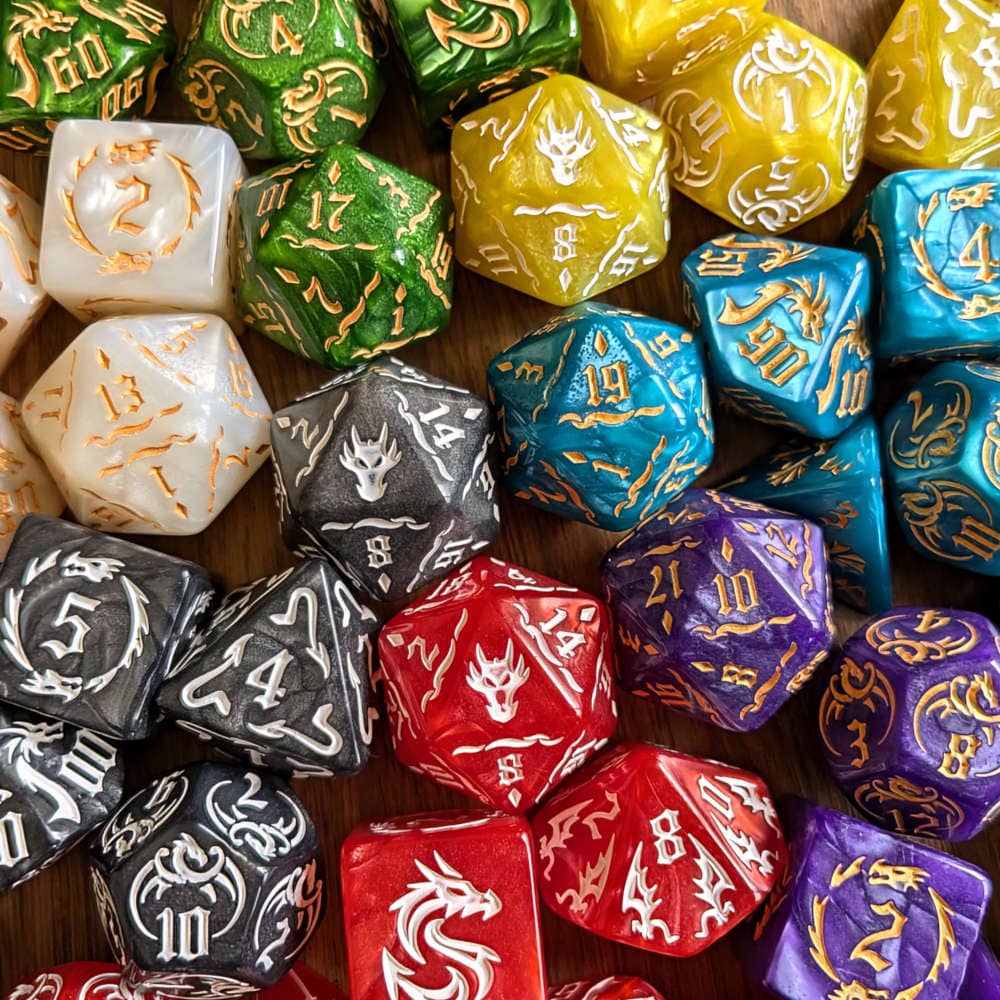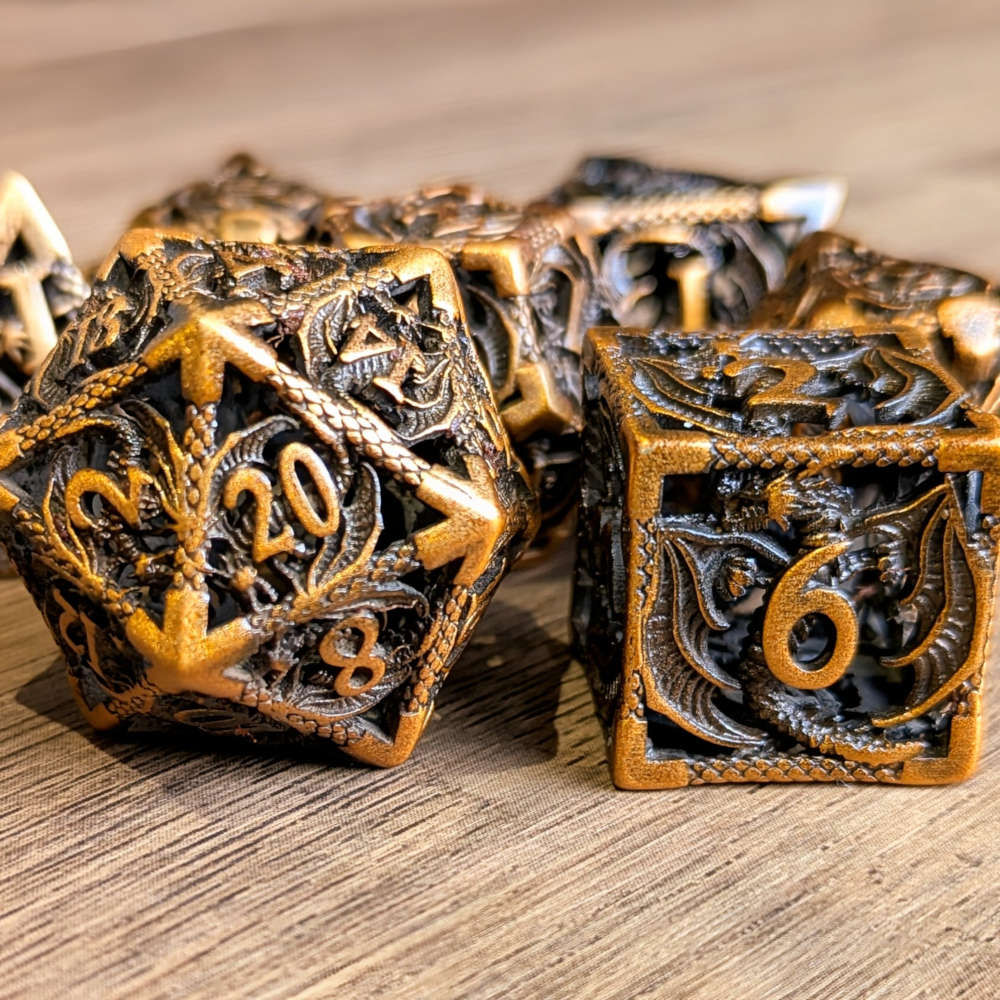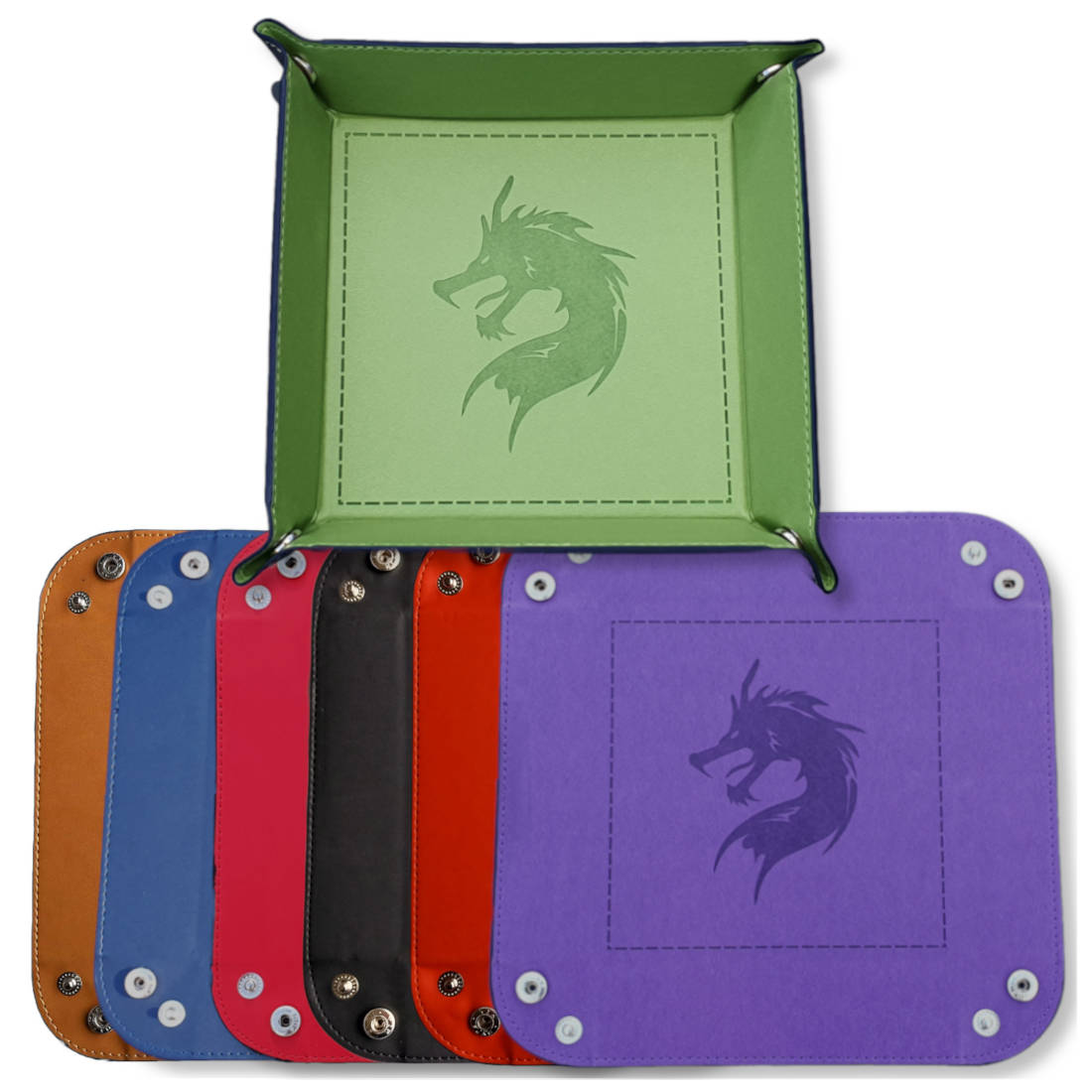Should I use XP or milestone levelling in D&D?

In the vast realm of Dungeons & Dragons, one question often sparks heated debates and lively discussions among players and Dungeon Masters alike: should you use experience points (XP) or milestone levelling to advance your characters? This choice fundamentally shapes the progression of your campaign and the dynamics at your gaming table.
In this article, we'll delve into the pros and cons of each levelling system, helping you decide which one aligns better with your D&D adventures. Whether you're a seasoned veteran or a newcomer to the game, understanding these two approaches will empower you to tailor your campaign to suit your group's goals.
What is XP levelling?
Experience point (XP) levelling is the traditional method of character advancement in Dungeons & Dragons. It follows a straightforward principle: characters earn XP for overcoming challenges, and as they accumulate enough XP, they gain levels. Each level brings new abilities, increased power, and greater versatility.
In 5e, defeating monsters (slaying or routing them) is the main way of getting XP. However, 5e also introduces the idea that non-combat encounters also grant XP based on their difficulty and risk.
Aside from combat, there are roleplay and exploration encounters - learn more about these in our guide that answers the age-old question 'how many encounters should there be in a day in D&D?'.
Here's how XP levelling works:
- Earning XP: characters earn XP primarily through combat encounters. Defeating monsters and adversaries grants XP based on their challenge rating (CR), with more challenging foes offering greater rewards. In addition to combat, non-combat encounters and quests can also provide XP based on their difficulty and importance.
- Tracking XP: players are responsible for tracking the XP earned by their characters on their character sheet.
- Levelling up: characters need a specific amount of XP to advance to the next level. The XP requirements increase with each level, making it progressively harder to level up.
- Gaining new abilities: as characters level up, they gain access to new features and abilities, such as improved combat skills, new spells, and class-specific talents. These abilities enhance a character's effectiveness in both combat and non-combat situations.
The Dungeon Master may also award XP when characters complete significant milestones. This is known as ‘milestone XP’ and grants them additional experience based on the importance of that particular milestone. The Dungeon Master’s Guide recommends treating a major milestone as a hard encounter, and a minor milestone as an easy encounter, for the purposes of granting XP to players.
Do all party members get XP?
In D&D 5th Edition, all party members receive an equal share of XP. This equitable distribution of XP helps ensure that every player character in the party has a fair opportunity to advance in levels and develop their abilities.
The rules regarding XP distribution are outlined in the Dungeon Master's Guide. The total XP awarded by the DM is divided evenly among the player characters, ensuring that each character receives the same amount of XP for their participation in an encounter or quest.
Do NPCs get XP in D&D 5e?
NPCs (non-player characters) can also be included in the XP calculation if they provide substantial assistance to the party during an encounter. For example, if an NPC actively participated in a combat encounter and significantly contributed to the party's victory, the DM may include them in the XP distribution.
It's important to note that the inclusion of NPCs in the XP distribution is at the DM's discretion. The DM assesses whether the NPC's role was substantial enough to warrant a share of the XP.
D&D experience table
Below is our handy XP levelling chart for you to use in your D&D campaigns. This is based on Dungeons & Dragons 5th Edition rules, taken from the Player's Handbook.

Pros of XP levelling
Using experience points (XP) as the method of character progression in Dungeons & Dragons comes with several advantages:
- Objective measure of progress: XP provides players with a numerical measure of their character's progress. Players can clearly see how much XP they have earned and how far they are from reaching the next level. This transparency allows players to set goals and track their advancement throughout the campaign.
- Incentive for active engagement: XP offers players a tangible incentive to actively engage with the game world. To earn XP, players must overcome challenges, complete quests, and participate in encounters. This encourages players to explore, interact with NPCs, and seek out opportunities to grow their characters.
- Encounter design: using XP may simplify encounter design for Dungeon Masters. DMs can balance encounters using XP calculations and multipliers, as outlined in the DND Beyond guide to encounter difficulty.
- Traditional and familiar: XP levelling is a classic and familiar progression system for many players, whether tabletop players or video game enthusiasts. It harkens back to the roots of the game and retains a sense of nostalgia. Players who have grown up with D&D or video games often appreciate the traditional XP-based advancement as a core element of the game.
- Sense of achievement: earning XP can provide a strong sense of achievement for players. It's a moment of celebration when characters gain new abilities, spells, or hit points. This sense of progress can be highly rewarding and motivate players to continue their adventures.
Overall, XP levelling offers a structured and quantifiable approach to character advancement. It helps keep players engaged, provides clear goals, and aligns with the traditional D&D experience, making it a popular choice for many gaming groups.
Cons of XP levelling
While XP levelling has its advantages, it also comes with several drawbacks that may not be suitable for all Dungeons & Dragons campaigns:
- Mechanical focus: one significant drawback of XP levelling is that it can shift the players' focus away from the immersive storytelling aspects of DND. When players view enemies primarily as sources of XP, it may lead to a ‘kill everything in sight’ mentality. This can detract from the narrative and role-playing elements of the game, turning it into a mechanical exercise rather than a collaborative storytelling experience.
- Incentive to grind: XP levelling can create an incentive for players to engage in repetitive combat encounters solely for the purpose of farming XP. This behaviour, known as ‘grinding’, can slow down the progression of the campaign and make it feel like a series of disconnected battles rather than a cohesive story.
- Increased book-keeping: managing XP for multiple characters and encounters can be mathematically intensive, especially in campaigns with numerous battles and challenges. This can lead to book-keeping fatigue for both players and Dungeon Masters, making the game feel more like a chore than an enjoyable pastime.
- Potential for imbalance: XP-based levelling relies on the assumption that all encounters are equally challenging and rewarding. However, not all quests or achievements can be quantified solely in terms of XP. This can lead to situations where players feel that their efforts are not adequately rewarded or that they are progressing too slowly due to factors beyond their control.
- Meta-gaming: XP levelling may encourage meta-gaming tendencies, where players make decisions based on optimizing their XP gain rather than role-playing their characters' motivations and personalities. Players might avoid non-combat encounters or creative solutions in favour of more straightforward combat scenarios that yield higher XP rewards.
In summary, XP levelling can sometimes foster a gameplay style that prioritizes mechanical advancement over storytelling and role-playing. Dungeon Masters and players should consider these potential downsides when deciding whether to use this system in their D&D campaign and should actively work to maintain a balance between mechanics and narrative.
What is milestone levelling?
Milestone levelling is an alternative form of levelling, where you remove the use of experience points and instead, the DM grants a level-up when the players complete a goal or reach a significant point. This approach is particularly useful for DMs who want more flexibility and storytelling control over character progression.
In the milestone levelling system, characters level up when they reach specific story-based milestones, complete major quests, or achieve significant accomplishments in the campaign. The DM decides when these milestones are met, considering the pacing and narrative flow of the story. This method allows the DM to tailor character advancement to fit the campaign's overarching plot and themes.
For example, the Dungeon Master's Guide in Dungeons & Dragons 5th Edition offers a rough guideline for milestone levelling progression. It suggests that characters should reach 2nd level after the first session of play, 3rd level after another session, and 4th level after two more sessions. Subsequent levels may require two or three sessions each, assuming each session lasts approximately 4 hours.
Pros of milestone levelling
Milestone levelling offers several advantages that can enhance your Dungeons & Dragons experience. Here are some of the key benefits:
- Narrative focus: milestone levelling places a strong emphasis on storytelling and role-playing. Characters advance when they achieve significant milestones or accomplish story-driven goals, aligning character progression with the campaign's narrative.
- DM control: Dungeon Masters have greater control over the pace of character advancement. They can strategically time level-ups to coincide with critical plot moments, ensuring that character growth complements the storyline.
- Simplicity: milestone levelling eliminates the need for tracking experience points, streamlining book-keeping and reducing the burden on both players and the DM. This simplicity allows everyone to focus more on the game's narrative and less on book-keeping.
- Team collaboration: since characters level up together based on collective accomplishments, milestone levelling reinforces the idea of teamwork and collaboration among players. It discourages the competitive mentality of ‘XP farming’ often associated with traditional XP-based systems.
- Encourages creativity: knowing that character advancement is tied to the story's progression, milestone levelling can encourage players to think creatively, seek out plot-related challenges, and actively engage in the world-building aspects of the game.
In summary, milestone levelling offers a more narrative-driven, streamlined, and flexible approach to character progression in D&D. It aligns character growth with the campaign's plot and encourages players to immerse themselves deeply in the storytelling aspect of the game. This system provides Dungeon Masters with greater storytelling control and simplifies book-keeping, making it an excellent choice for those looking to emphasize the narrative aspects of their campaigns.
Cons of milestone levelling
While milestone levelling has its advantages, it also comes with some drawbacks that might not suit every group's preferences. Here are five common disadvantages with this system:
- Lack of continuous progression: unlike XP levelling, where players see incremental progress with each encounter, milestone levelling offers only one significant moment of progression: the level-up. This can lead to a sense of stagnation between milestones, with players craving a more continuous sense of advancement.
- Arbitrary timing: levelling up in milestone-based systems is often tied to specific story moments or DM decisions, which can feel arbitrary to players. This lack of predictability might frustrate those who prefer a clearer understanding of when they'll advance.
- Campaign pacing: if not carefully managed, milestone levelling can lead to pacing issues. Some players might be eager to level up quickly, while others prefer a more gradual progression. Striking the right balance to keep everyone engaged can be a challenge.
- Dependence on DM's judgment: the timing of level-ups often depends on the Dungeon Master's judgment, which can be a source of frustration if players feel the DM is delaying progression unnecessarily.
- Potential for disconnection: since milestone levelling is tied to specific story events, players who become disconnected or disinterested in the ongoing narrative might lose motivation to participate actively in the game until the next milestone is reached.
In summary, while milestone levelling offers a narrative-driven approach to character progression with several benefits, it may not be suitable for all players or campaigns. The lack of continuous progression and arbitrary timing are factors that should be considered when deciding whether to use this system. It's essential to communicate with your group and choose a levelling method that aligns with your collective preferences and the style of campaign you want to experience.
What is the difference between XP and milestone levelling?
The choice between XP and milestone levelling often comes down to the type of campaign you're running and your group's preferences.
XP levelling is ideal for campaigns centred around combat and exploration, as it directly rewards overcoming challenges and slaying monsters. On the other hand, milestone levelling is better suited for narrative-focused campaigns that emphasize character development and intricate story moments. With milestones, the Dungeon Master has more control over the pacing, making it an excellent choice for long-term campaigns where the story takes precedence over combat encounters.
Is milestone or XP better?
We asked the r/DnD community and the results were clear: 86% prefer milestone. Many cited the ability to control pacing of the game and the ease of encounter creation.
Ultimately, the decision should align with the style and goals of your D&D adventure. Speak with your fellow players to decide which is best for your table.
Another key choice that you should discuss with your fellow players is what level to start D&D at.
Taking the next steps on your grand adventure
In the grand tapestry of Dungeons & Dragons, the choice between XP and milestone levelling is just one thread. What truly matters is not which system you employ, but rather the experience you craft at your gaming table. Becoming a good DM is about understanding your players, engaging in open dialogue, and finding a rhythm that suits your campaign.
If you're ready to embark on your next D&D adventure or want to enhance your gaming experience, explore our exquisite collection of D&D dice sets. For more insights into the nuances of tabletop role-playing, delve into our guide on the differences between playing D&D online and in-person. May your rolls be ever in your favour!





